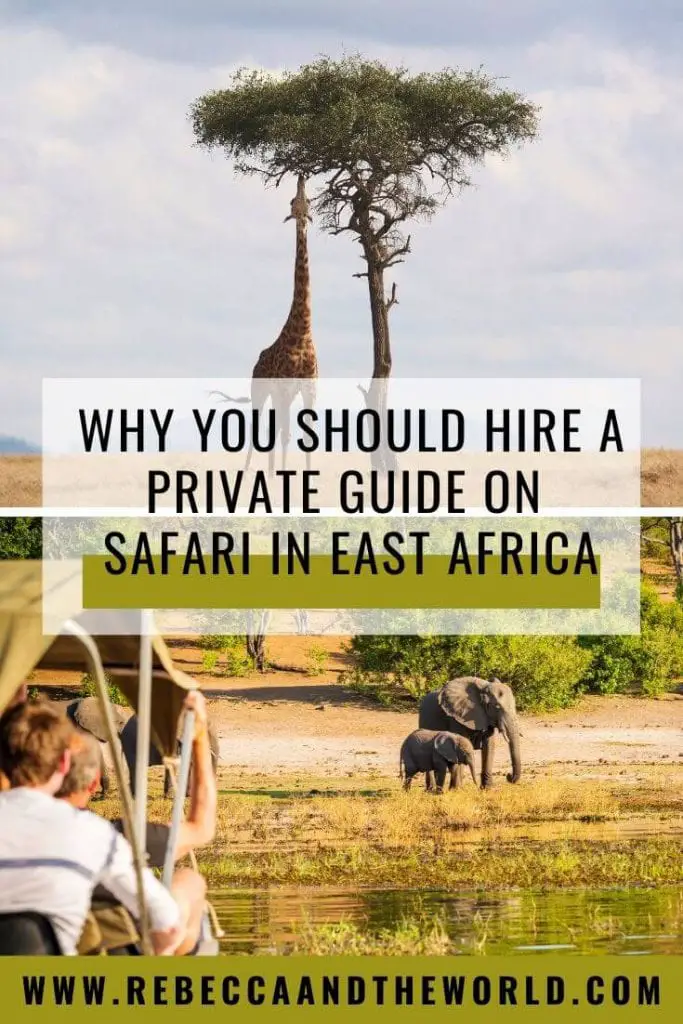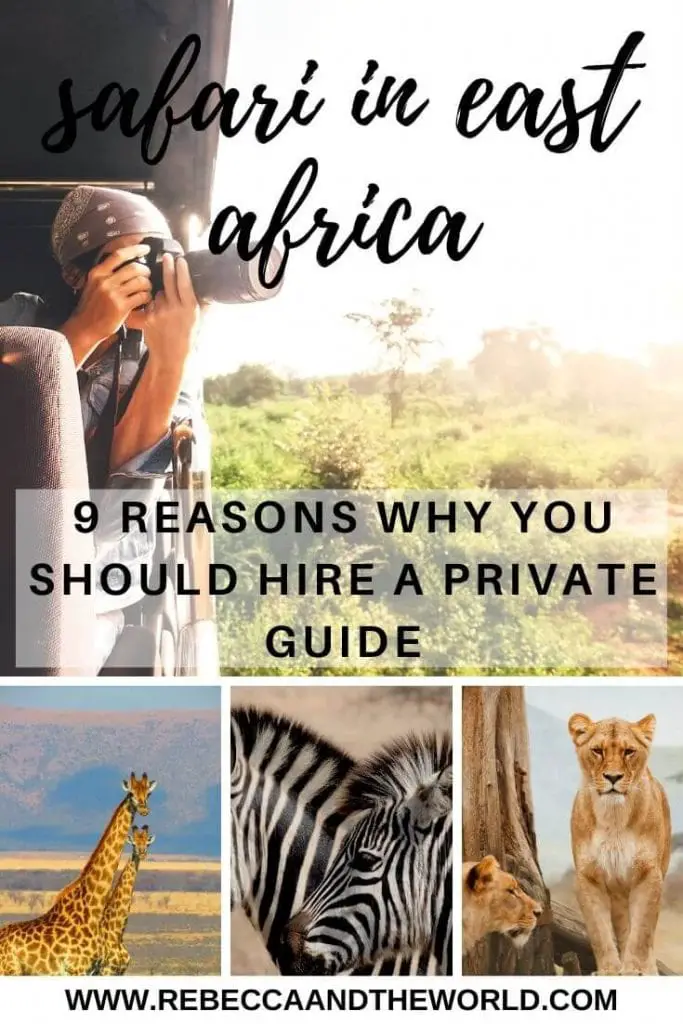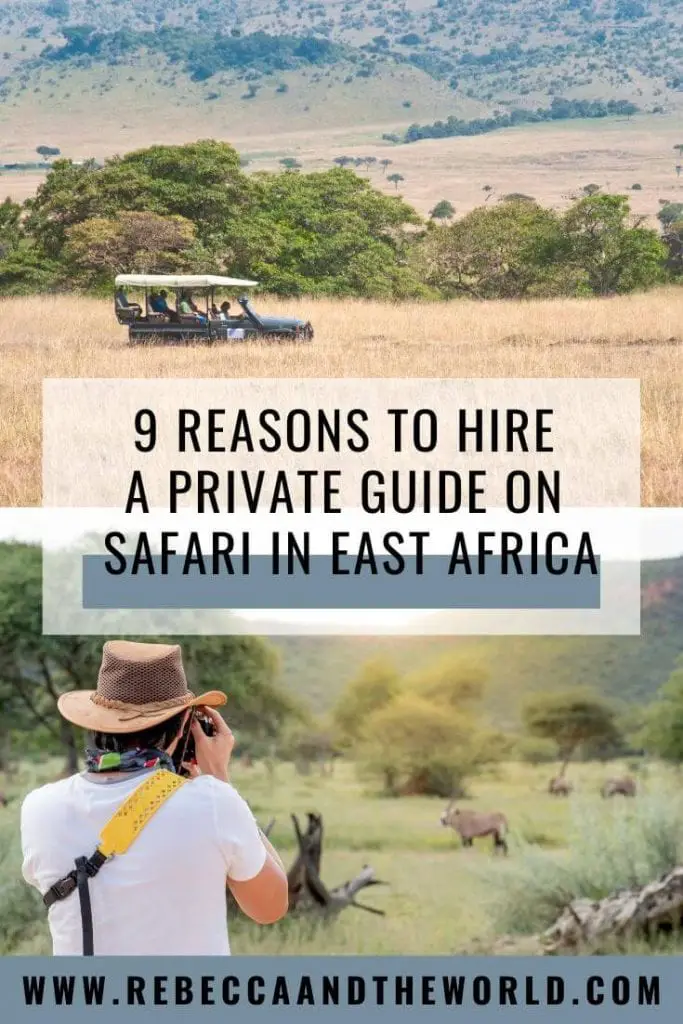Wondering how you should get around on your safari in East Africa? I explain the pros and cons of various ways – and highlight why a private guide is always best.
If I took a sneak peek into your bucket list, I bet it lists “African safari”.
And one of the best places to go on safari is East Africa.
There’s nothing quite like the thrill of seeing predators in the wild just a few metres from your vehicle, or driving across the open savannah as the sun starts to peek above the horizon, or waking in your tented room to hear lions roaring or hyenas barking.
Of course, amazing experiences require a lot of research and planning, so I’m here to help you plan your safari in East Africa and figure out – once you book your plane ticket and land on African soil – how you’ll get around there.
One question you may have is whether you should hire a driver or a guide when you visit East Africa or try independent travel. It’s a question I spent a lot of time thinking about before I visited.
You’ve probably guessed from the title of this article which path I went down – and I’m going to tell you why later in this blog post. But I’m also going to first give you information about other ways to travel in East Africa so that you can figure out which is best for you.
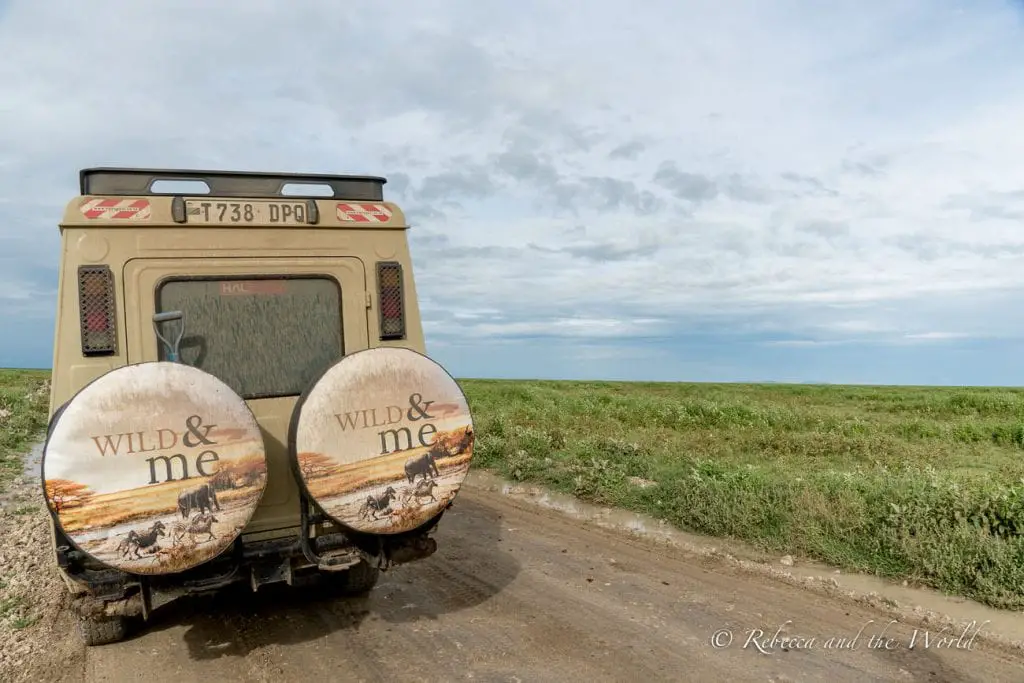
This blog post may contain affiliate links, meaning if you book or buy something through one of these links, I may earn a small commission (at no extra cost to you).
What countries are in East Africa?
First up, what countries are in East Africa? Generally, Kenya, Tanzania, Rwanda, Uganda, Burundi and South Sudan are considered the countries that make up East Africa.
On my month-long trip to East Africa, I visited Uganda, Rwanda and Tanzania. While I didn’t visit Kenya (home to the famous Maasai Mara), I talked to my guides about the country a lot, as both tour operators I used also organise tours there. So, a lot of the advice I’ve included in this article applies there as well. And if you need some inspiration, check out this Kenya itinerary from a local.
I also didn’t go on safari while in Rwanda – although there are plenty of ways to see wildlife in this compact country, including the incredible mountain gorillas as well as other primates.
Given the current security situations in both Burundi and South Sudan, the information in this blog post doesn’t apply to those countries.
How to travel in East Africa
There are several ways you can get around East Africa. I’ll go through the options and the pros and cons of each so you can decide what works best for you.
Private guide
There are so many private tour operators in East Africa that you’ll probably work yourself into a spin trying to decide which one to use. From small, local startups to huge, international conglomerates, the options really are endless.
A private guide means that you’ll have your own vehicle with a driver who also doubles as a guide. If you have a large group, you may even have a driver and a separate guide.
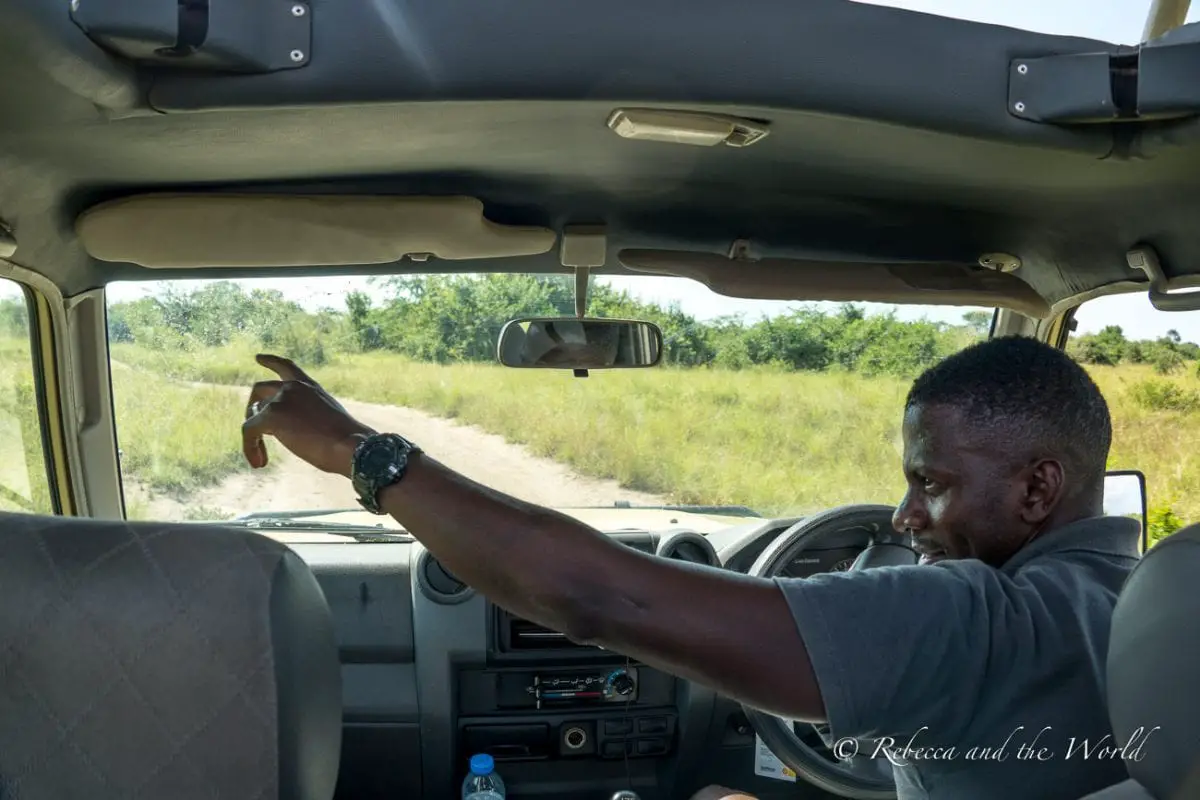
Pros:
- It’s your trip, which means you can customise the itinerary to suit your interests and needs.
- A driver/guide is always with you and can provide in-depth knowledge about wildlife, culture and history, as well as keep you safe.
- Safari holidays take a lot of planning. With a private guide, everything is arranged for you, so you don’t need to spend hours researching routes, accommodation, restaurants, national park fees and vehicle hire costs. Just turn up and enjoy the journey.
- Good choice if you’re travelling solo or in a group (although if you’re solo (like I was), you’ll be picking up the entire cost rather than sharing it with family or friends).
Cons:
- Private, organised safaris in East Africa can be costly. For trips with mid-range accommodation, you’re looking at upwards of US$250 per person, per day.
- Not all companies are equal. There are plenty out there that are unethical or don’t have the in-depth wildlife knowledge to enhance your safari experience. You definitely need to do your research and get recommendations.
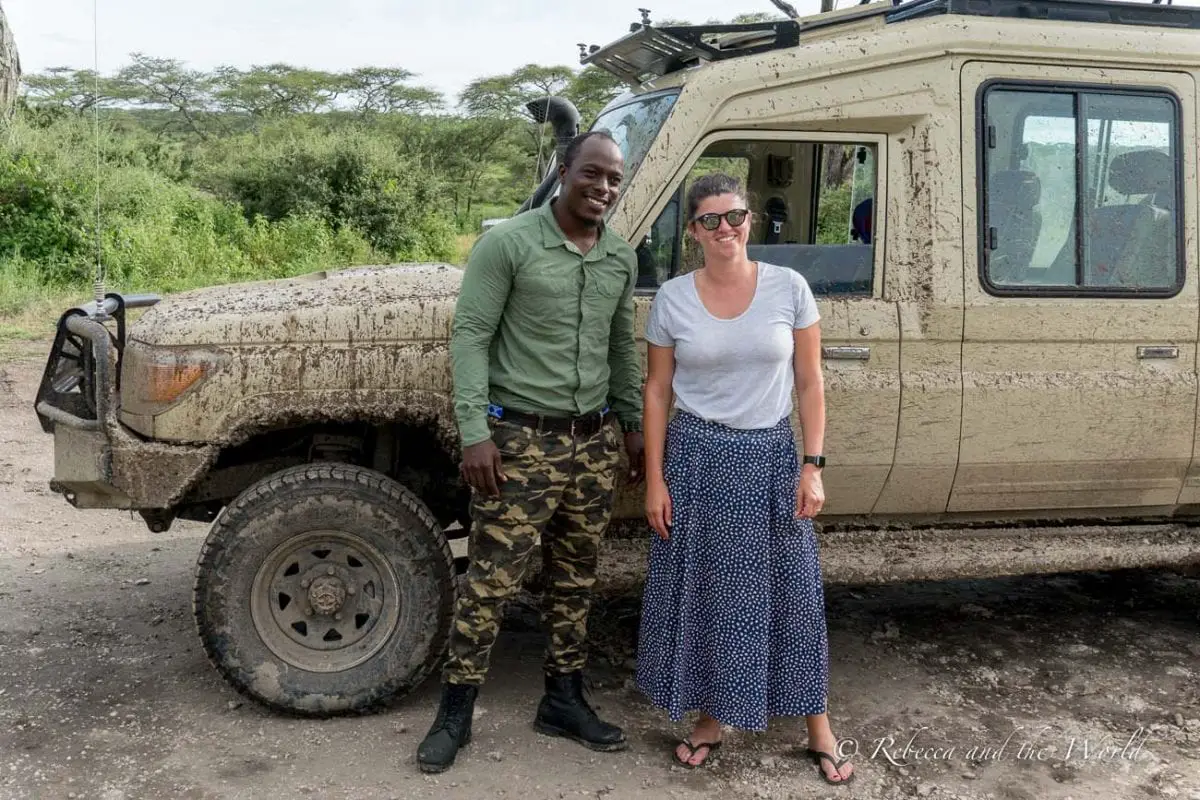
Group tour
There are plenty of companies offering group tours for all budgets, from budget camping safaris to high-end luxury tours. A quick Google search of tour companies in East Africa will reveal a long list for you to sift through. TourRadar is a great place to start, as you can search by company, length of trip and price.
Pros:
- Great way to meet other people, especially so if you’re travelling to East Africa solo.
- A group tour can be more affordable.
- Everything is arranged for you, so you won’t have to spend time researching the countries that you want to visit and crafting an itinerary.
- You also know everything you need to pay, so you can budget accordingly.
- There’s a huge variety of tours out there, so you’re bound to find something to suit.
Cons:
- You won’t have much say in the itinerary (which is usually locked down when you book). You’ll have to negotiate with others in the group when you want to do optional activities.
- Some group tour itineraries are planned down to the minute, which doesn’t allow for much downtime.
- You’re travelling with a bunch of strangers – some people relish this, others may struggle if their fellow travellers aren’t similar to them. Make sure you ask about the other people booked on your trip – if you’re young, ending up on a tour with a bunch of older people may not be how you expected to spend your trip.
Self drive
For those more independent-minded, self-drive travel in East Africa is one huge adventure. You’ll be navigating rutted roads, finding your way through unmarked tracks in national parks, perhaps sleeping out under the stars if you decide to camp.
Pros:
- Adventure! There are few things as adventurous as driving around East Africa by yourself.
- The itinerary is all yours – you can choose what national parks you visit, what time you take your game drives, where you stay the night.
- Most national parks allow self driving, you’ll just need to do your research in advance to confirm which ones.
Cons:
- In some countries, it can be surprisingly difficult to rent a vehicle. In Tanzania, I saw only a handful of people doing self-drive journeys. Uganda and Rwanda, I saw a few more. Roadtrip Africa is a popular company to use (and you can hire just the car or choose a car with a driver).
- You won’t have a guide to find the best wildlife-watching spots or tell you interesting information about the animals in front of you.
- You’ll need to figure out national park fees and booking requirements in advance. Many national parks need advance bookings – you can’t just roll up to the gate, pay a fee and enter. Some car rental companies can help with these bookings, though.
- It can be challenging to get around. In many national parks there is little signage (I have no idea how my drivers knew where to go!) so getting lost is easy. Road conditions aren’t always great, and if there’s rain, expect to be driving through mini rivers or to get bogged at least once.
- Self-drive travel in East Africa isn’t for everyone: it can be dangerous if you don’t have experience driving 4WD in a variety of conditions.
- For some countries, there’s not a lot of information online about self-driving.
- Self driving often doesn’t actually work out to be much cheaper than hiring a private driver.
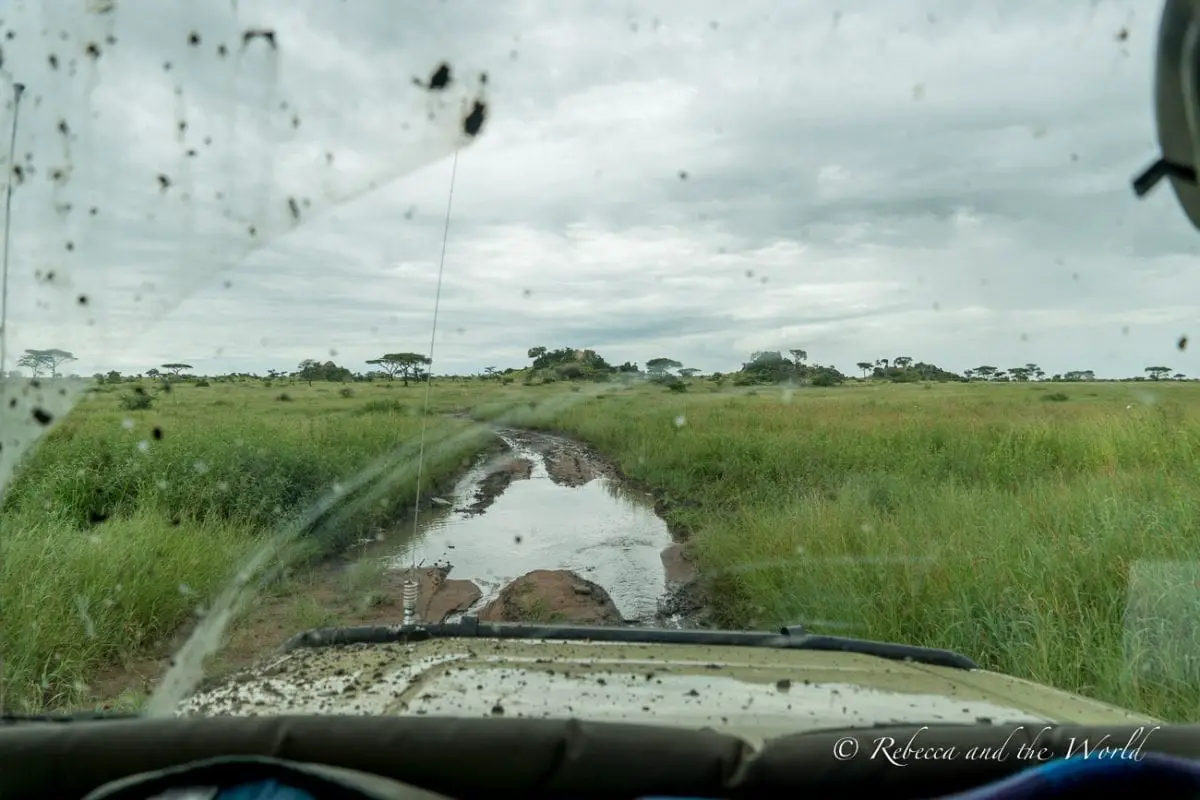
Public transport
For the intrepid – and those with some time on their hands – getting around on public transport offers a different type of adventure in East Africa. Most countries in East Africa have fairly extensive public transport networks, mostly made up of buses.
Pros:
- Nothing says adventure like navigating your way around a country on buses packed with people.
- You can plan your own itinerary (around the public transport routes).
- It’s a great way to meet people and learn more about the country’s culture – and a bit of the language.
- It’s a cheap way to travel.
Cons:
- In most countries, buses don’t run directly to national parks, so you’ll need to figure out how to get to the gates, and then how to get around inside the national park. Some accommodations can arrange day tours with a driver, so you can use public transport to get to your lodging, and then go with their drivers to the national park. Having said that, some buses run right through national parks (like the Serengeti), but the chances of seeing wildlife are low because the buses roar through on a tight schedule.
- You’ll need to factor in plenty of time for the often poor condition of roads, buses breaking down and delays as buses often only depart once they’re filled with people.
- You won’t have the benefit of an experienced guide who can find and point out wildlife in the national parks.
Why I think you should hire a private guide for a safari in East Africa
So, now that I’ve talked about each of the options, why am I so gung ho about hiring a private guide? I’ve got a few reasons to share, but first I wanted to tell you a bit about the companies I used during my time in Uganda and Tanzania.
In Uganda, I hired Ellington Safaris, owned by Ugandan Shaun Sendyowa and his wife Jenny.
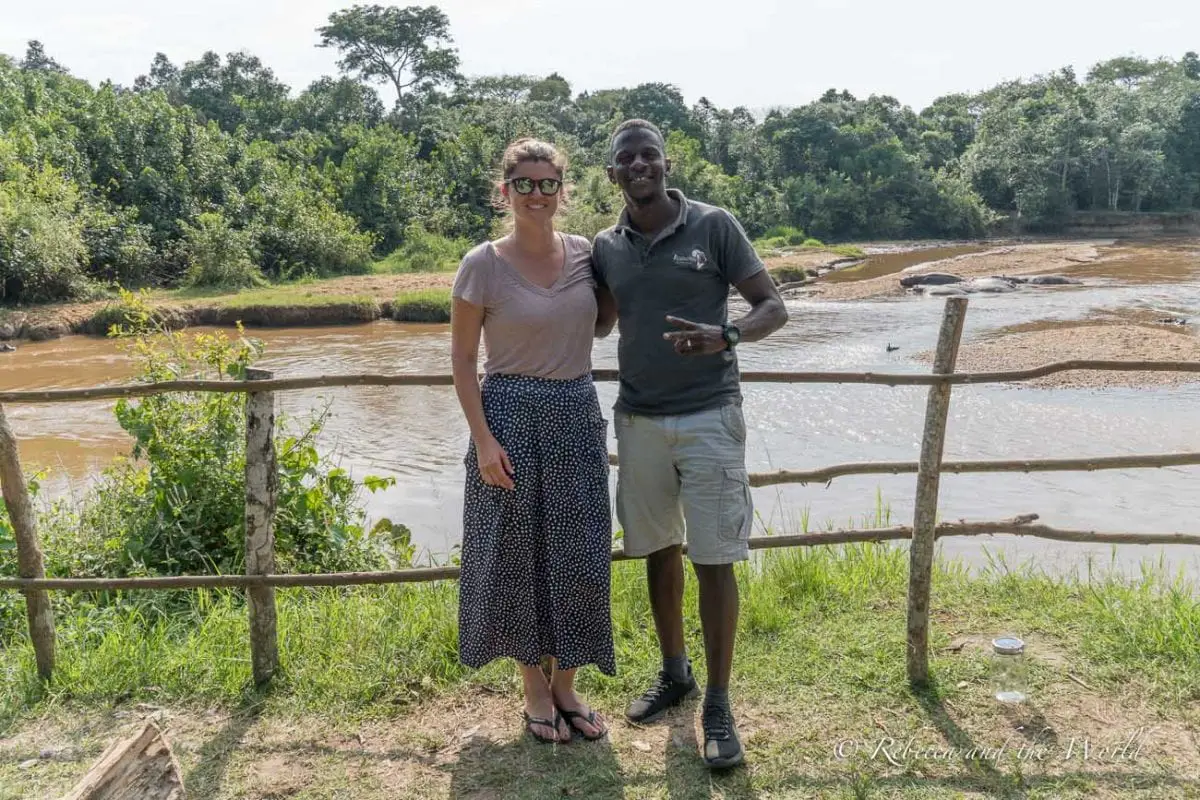
I was thrilled with my experience with Ellington Safaris. Owner Shaun Sendyowa started the company about a decade ago, inspired by the safaris he would take with his grandfather, George, and his grandfather’s friend, John Ellington, a Brit. The two friends served together during World War II, and later John Ellington would come to Uganda where he would go on safari with his old friend George.
Shaun would join George and John on these safaris and that’s where his love of the African safari adventure came about. His passion for showing visitors his country is contagious and he’s a great guy to hang out with for a week or two.
For my Tanzania safari, I hired Safari Republic. While owner Jackie is Australian, she’s lived in Tanzania for more than 6 years.
Jackie is actually a friend of a friend of mine. And by the time I left Tanzania, she was a friend of mine. I was lucky to spend three days with her hiking from Ngorongoro Crater to Lake Natron (one of the highlights of my Tanzania itinerary).
I also had an awesome support crew for the hike – William and Michael doing all the cooking and organising, Amani my Maasai guide, and China our driver. Later in the trip, Baraka was my driver guide and his knowledge of wildlife is incredible.
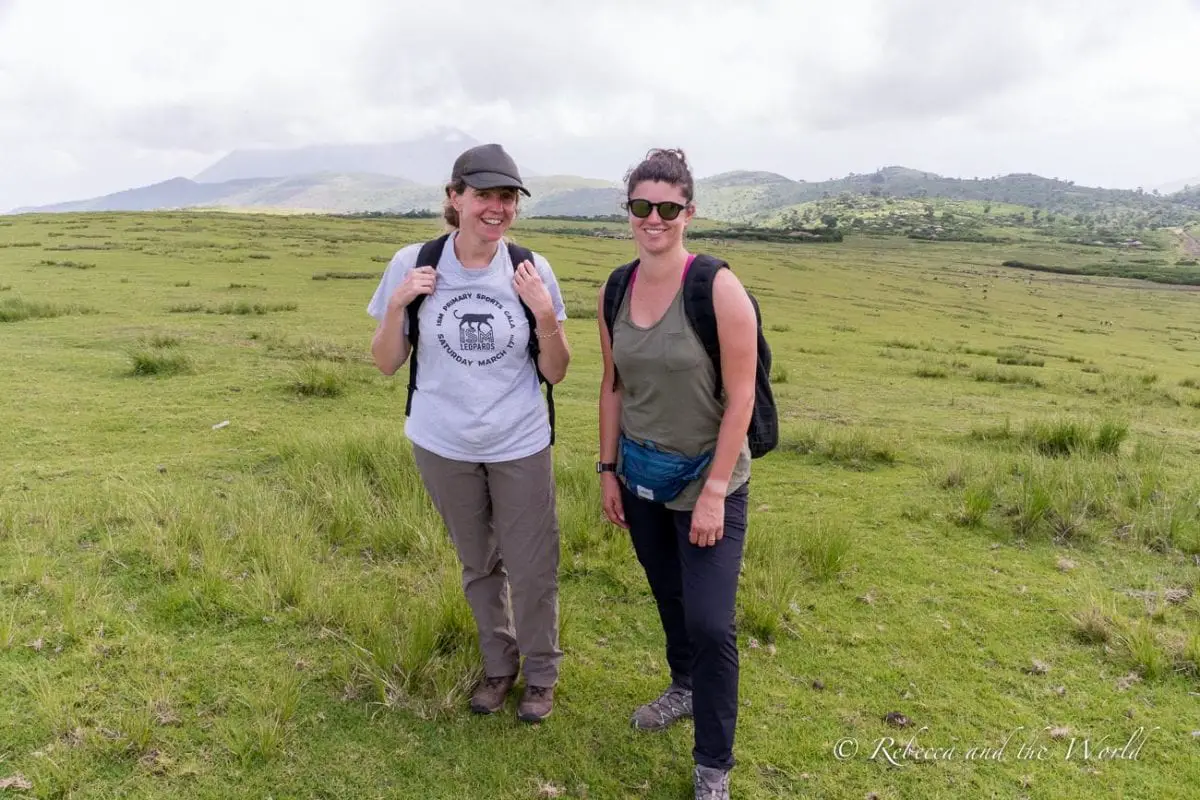
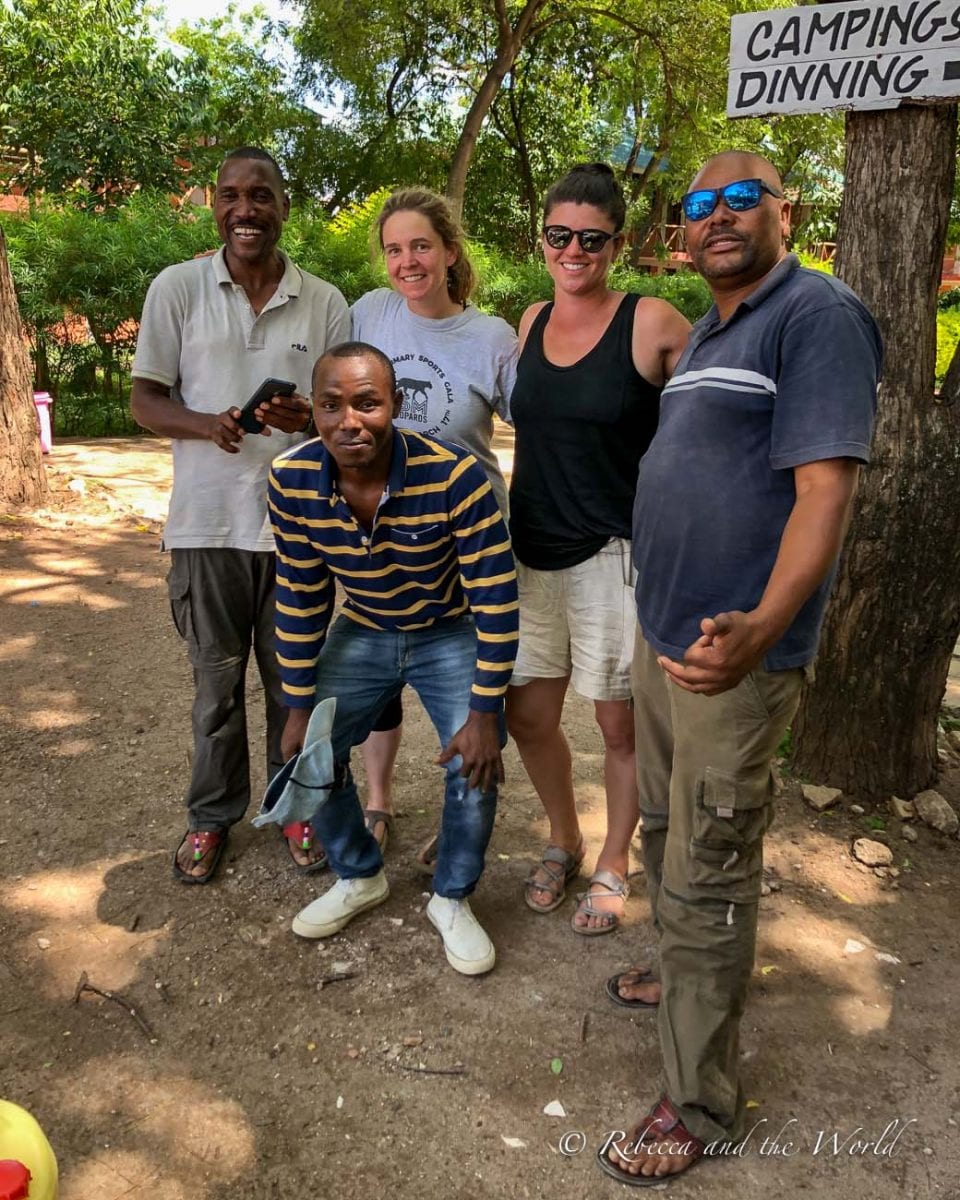
Safari Republic is a small company and the attention to detail is superb. Jackie spends a lot of time talking to all her clients so she can really understand what they want to get out of their trip.
Both companies get most of their clients through word of mouth – which to me is an indication of the quality they provide.
I highly recommend both of these tour operators. You can contact them directly through their websites. Or contact me separately if you’d like more information about why I think they’re great companies.
So, now that I’ve told you about the companies I used, let’s jump into the 9 reasons why I think you should hire a safari company in East Africa.
1. A tour operator does all the legwork
Normally I love planning every aspect of a trip. I love plotting out an itinerary and figuring out where we should stop and what there is to see along the way. I love choosing accommodation and researching the best restaurants. Hunting down the touristy spots that I have to see, as well as finding hidden gems recommended by locals, is my jam.
But when it came to my trip in East Africa, it all just seemed so hard. The main points of interest are outside the big cities and researching where to stay near national parks made my brain hurt.
Which is why I decided to leave it to someone else. Both Ellington Safaris and Safari Republic arranged everything: the accommodation, the national park fees, the vehicles. Ellington Safaris also arranged the most important thing: my gorilla tracking permit so I could finally tick that off my bucket list.
I didn’t have to think about a thing except enjoying my time in East Africa.
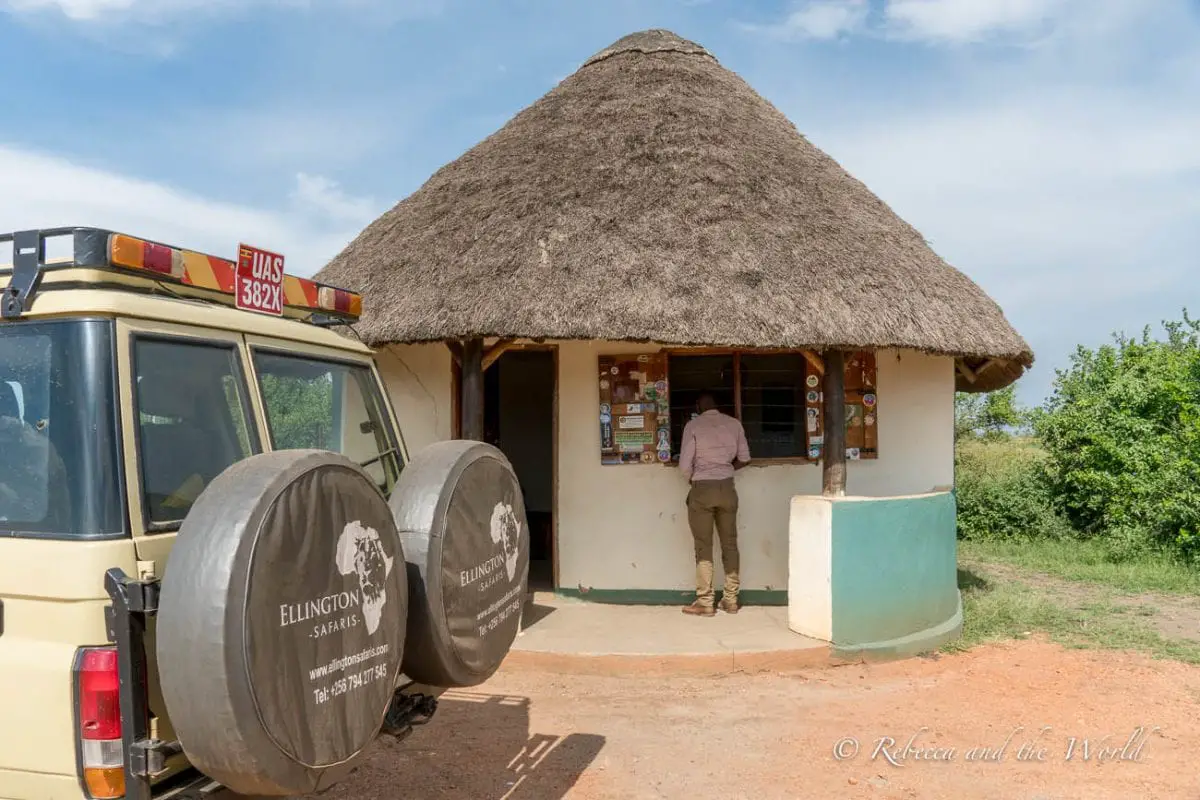
2. East Africa safari companies can customise an itinerary to your interests
While you may be heading to East Africa for a safari, you may have something specific in mind. Perhaps you’re a twitcher? Or you love photography and want to get the best wildlife shots? Maybe you want to learn more about the local culture? Or you’re adventurous and you want to do some hiking? Do you want to go gorilla trekking?
A good, experienced tour operator can arrange all of that and find specialist guides to make your trip extra special.
(And if gorilla trekking is on your list of must-dos in East Africa, check out my full guide to gorilla trekking in Uganda and Rwanda.)
3. Safaris can be expensive but can be tailored to your budget
There’s no denying that a safari in East Africa won’t be cheap. Even budget Africa tours can start at around $100-$150 per person, per day.
There are many things that you can’t change – you’ll need a reliable vehicle, there’s petrol to be purchased and staff to be paid – but a good tour operator can tailor an itinerary that suits your budget. Tell them how much you can spend and they’ll find accommodation (usually the biggest variable cost) that will fit that budget.
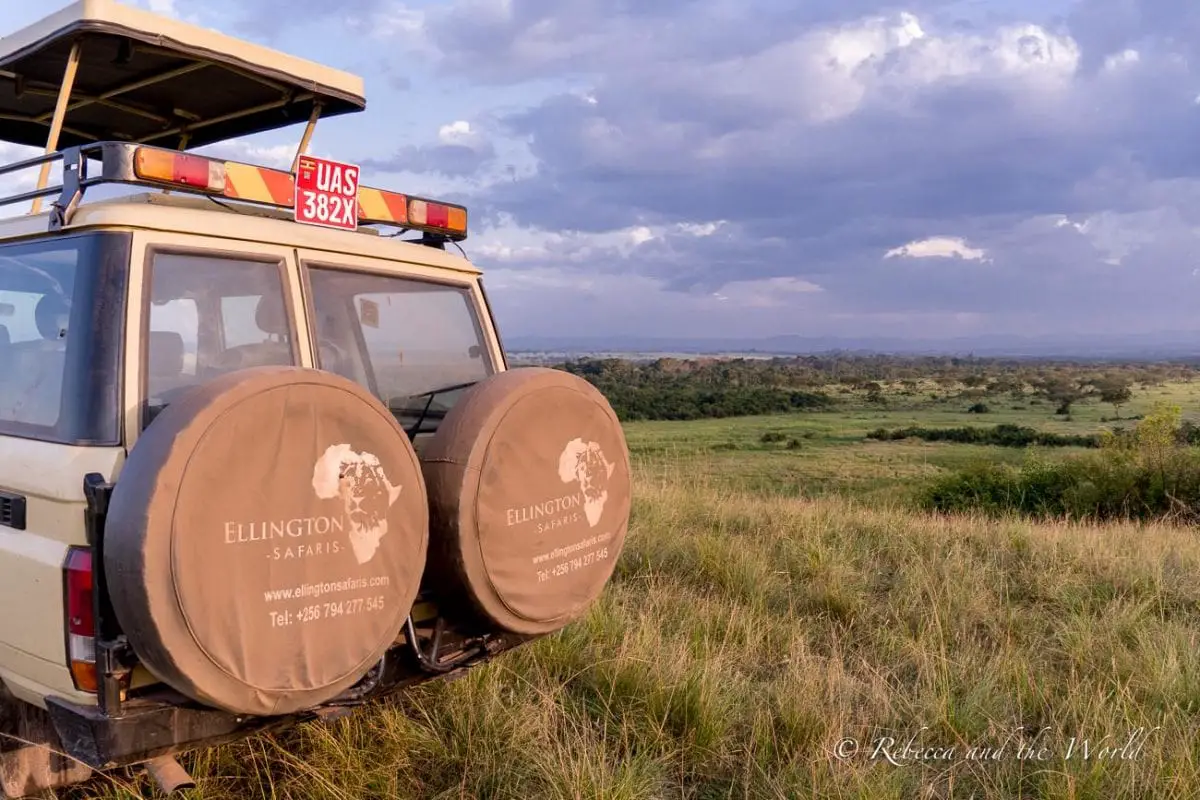
4. Most things are paid for in advance
One thing about my trip to Uganda and Tanzania is that I knew that most things were already paid for. By booking through a safari operator, my accommodation had been paid – and most included meals.
I only needed to bring along cash (or my credit card) for extra drinks, souvenirs and tips.
5. The drivers know the national parks
The whole time I was in the car, I kept asking Shaun (in Uganda) and Baraka (during my safari in Tanzania) how the heck they knew where they were going. In most of the national parks, there were very few signs. But somehow the two of them knew where each track led and which ones usually yielded the best wildlife viewing.
With the unmarked tracks, it would be so easy to get lost. But not with a guide!
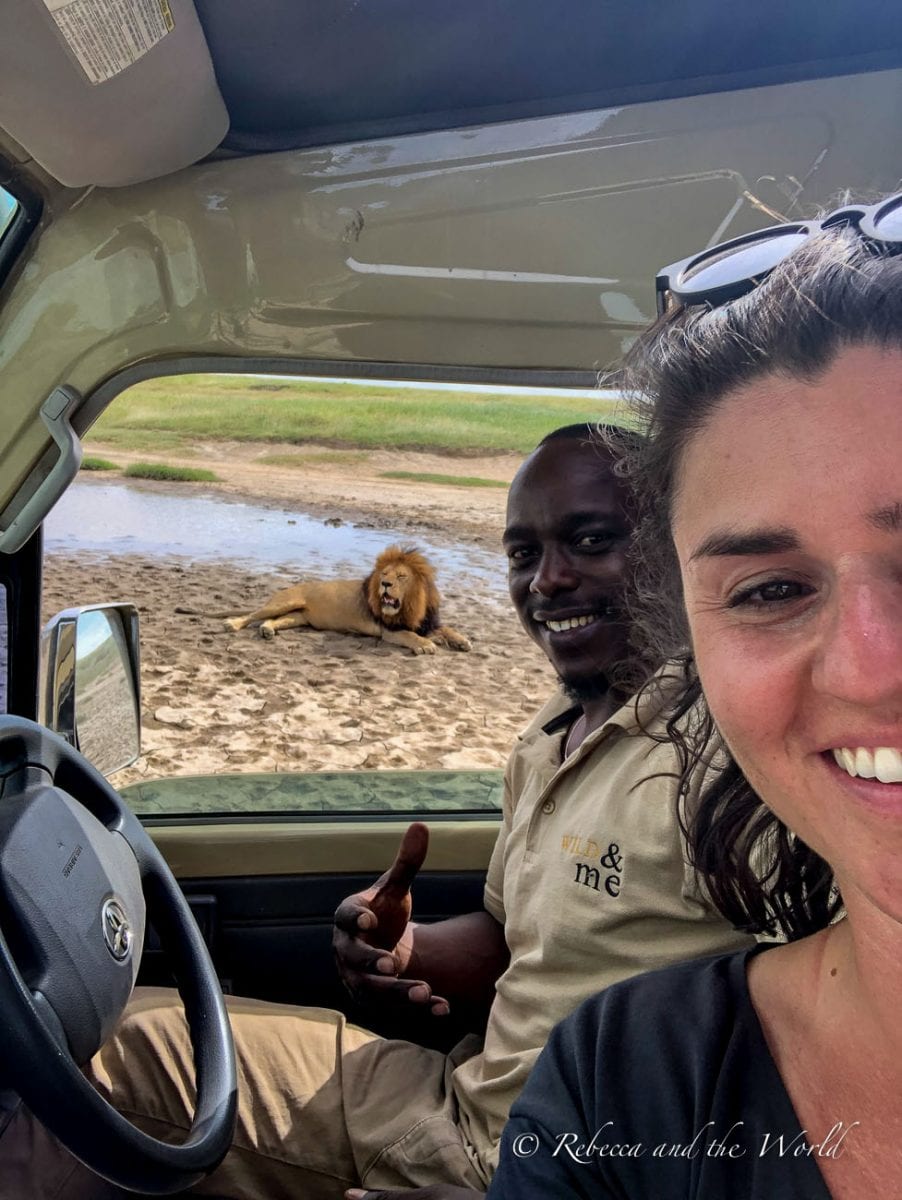
6. A guide will see wildlife that you can’t
Most drivers double as guides, and most of them have an incredible wealth of knowledge. After years of plying the dirt roads, they’ve picked up an encyclopedia worth of information about wildlife.
Both Shaun and Baraka rattled off facts and information about all the wildlife I saw – stuff I’ve never even heard on animal documentaries.
They’re also amazing at spotting wildlife. What to me looked like a rock would be an elephant, or a flick of a head from half a kilometre away would signal a lion that I didn’t see until I was only metres away.
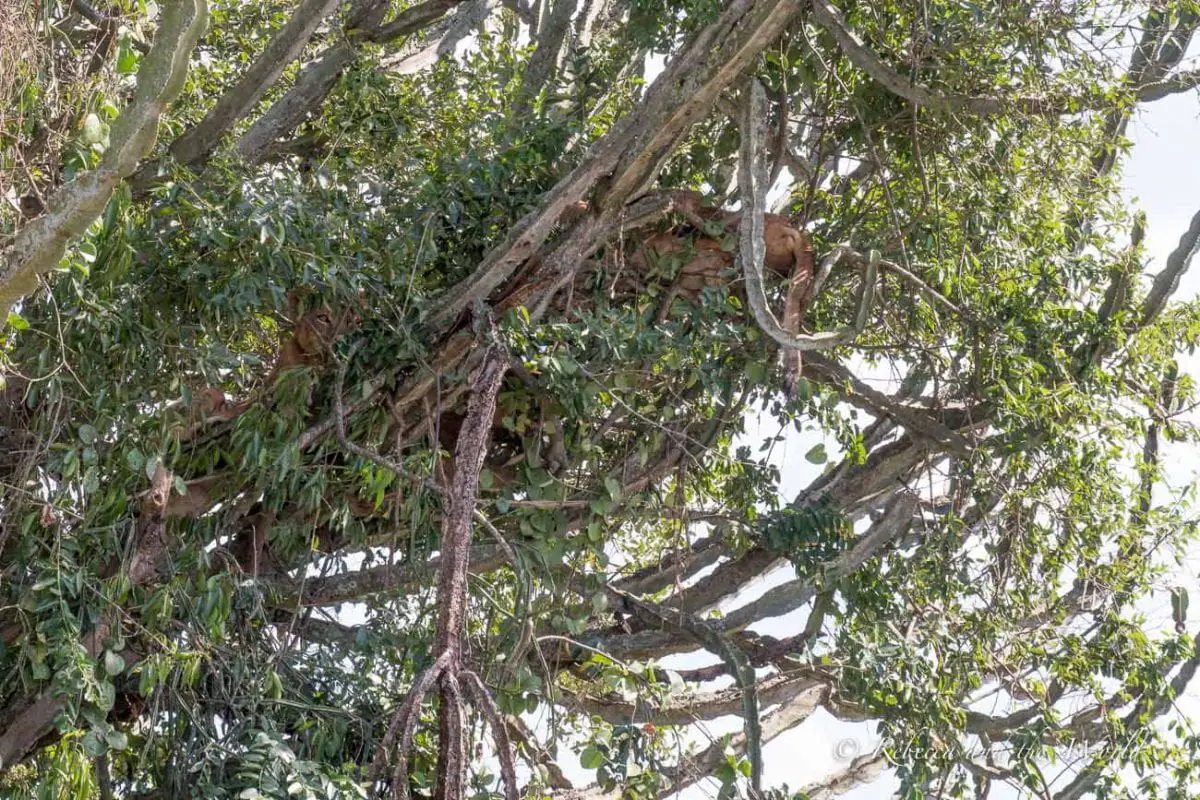
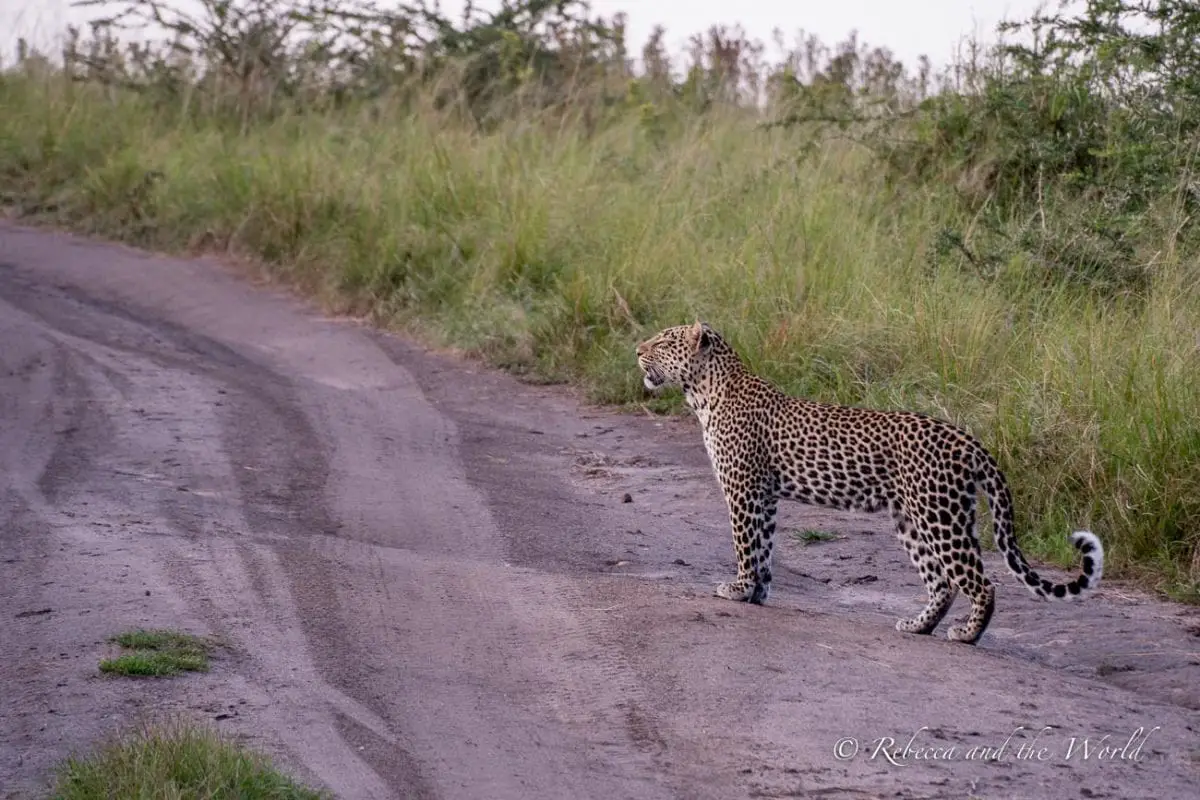
7. They are great drivers
Most private drivers have insane driving skills. They’ve either had extensive driving training or their years of experience have given them driving talents that rival rally car drivers.
I still remember how quickly Shaun jumped in the car and backed up when it looked like an elephant might charge us, or the way Baraka skillfully navigated muddy roads that had bogged other cars.
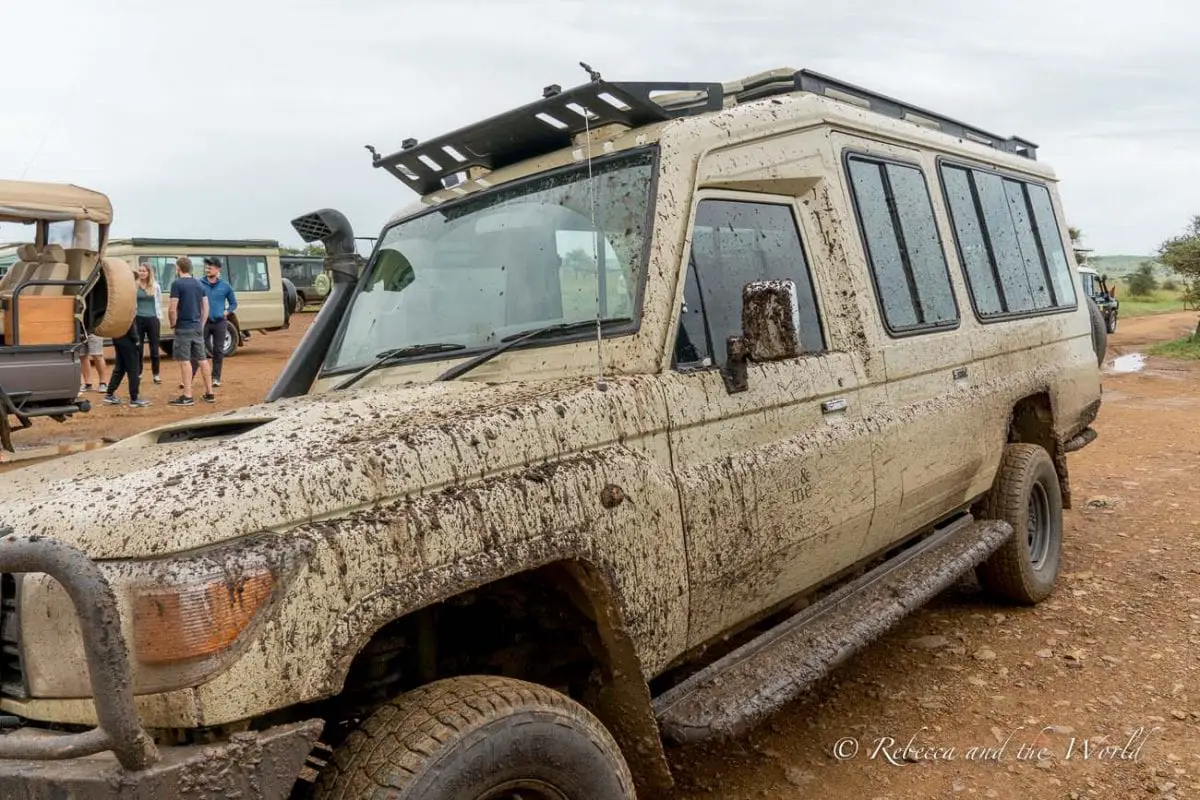
8. The guides work together
The network that guides have is incredible. I thought that they might be extremely competitive with each other, but no, during my safari trip I discovered that they stop and talk to each other and share information about wildlife sightings (often using secret words because everyone now knows what simba means!). They all want their clients to have the best experience, and they even want to make sure that other companies’ clients have an amazing time.
One of the most incredible examples I saw was when Shaun and I got bogged. As we went to get help, we saw another driver and he lent us his car so that we could go on an evening game drive while he gathered up a group of guys to get our vehicle out of the sand. Incredible.
If you’re not with a private driver, you’ll never get that help (actually, you probably will because it’s just the African way to stop and help each other) or inside knowledge.
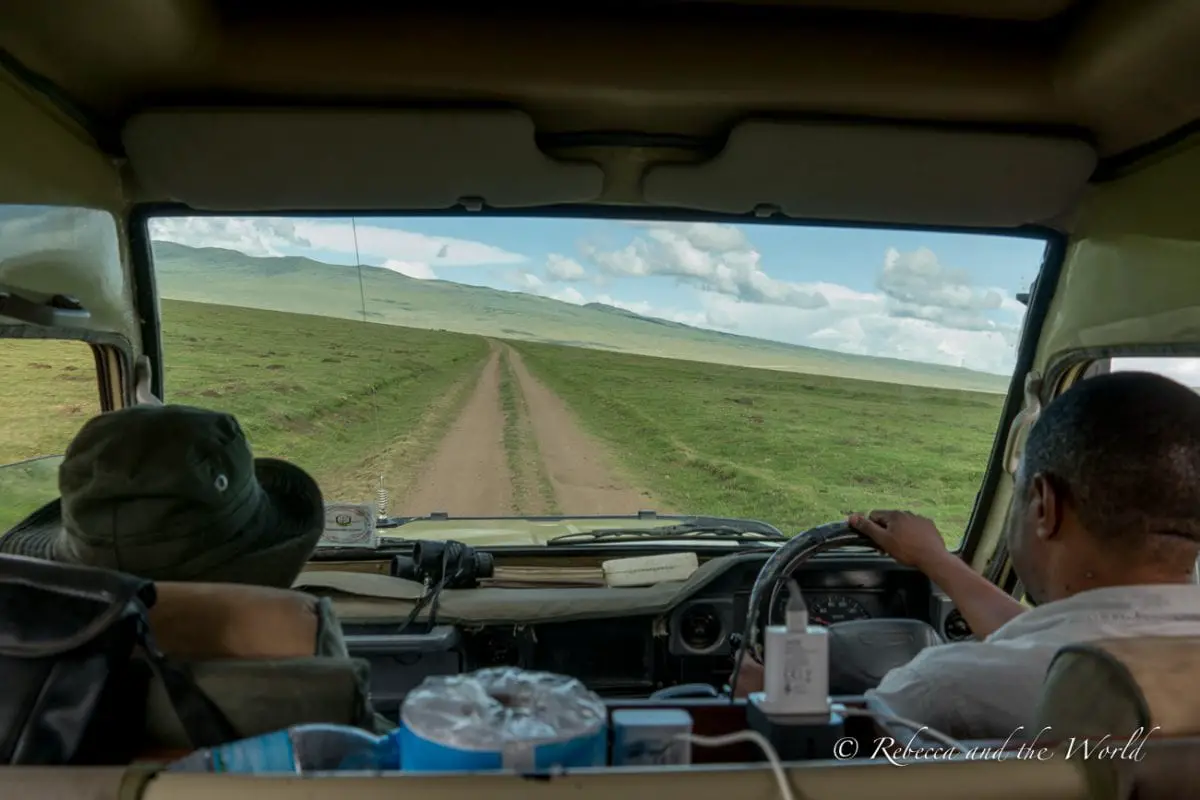
9. You’ll always have a photographer on hand
I usually don’t snap photos of myself while I’m travelling. But, travelling solo, it was handy on this trip to have a personal photographer at all times! Shaun and Baraka were both really fabulous photographers (I was also super jealous of Shaun’s mega 600mm lens).
If you’re travelling as a group, you’ll always have someone to capture shots of you and your family and friends enjoying your safari.
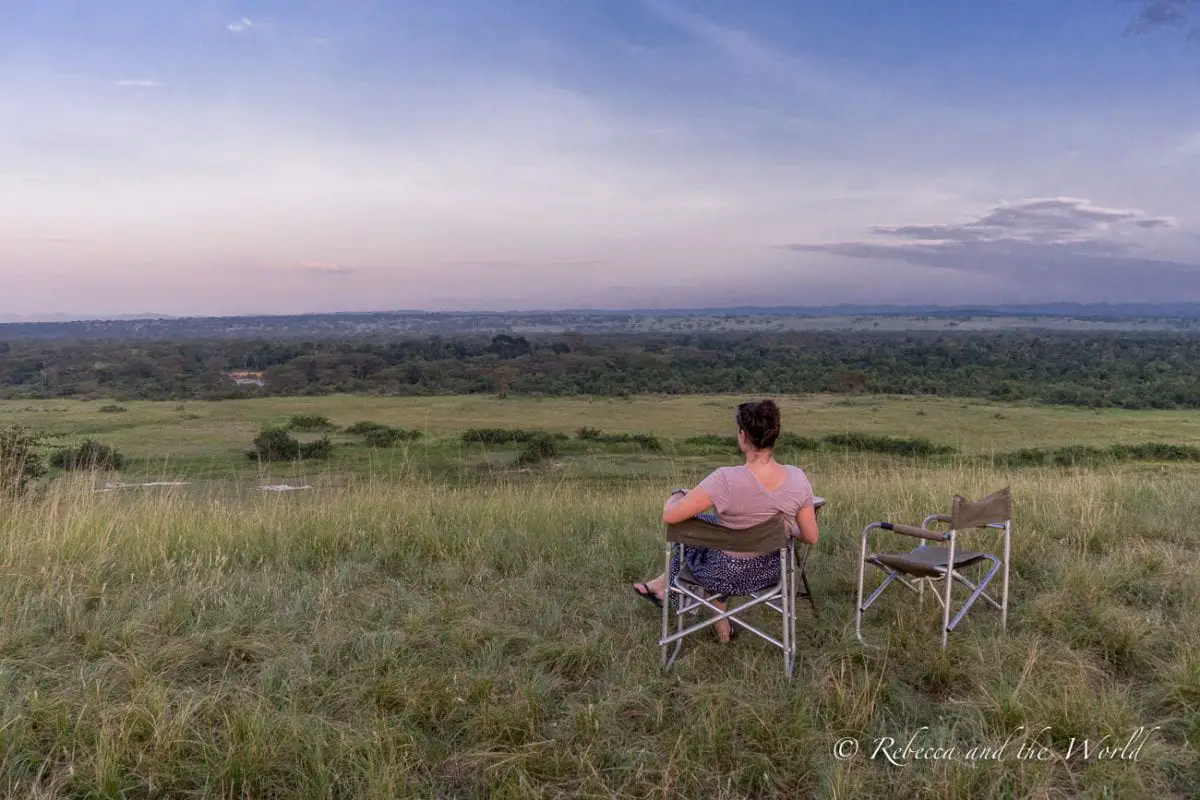
Things to consider when you choose a safari company
I’ve already recommended two amazing safari operators in East Africa. But, if you’re still in the research phase, here are a few questions to ask yourself and the company as you make your final decision.
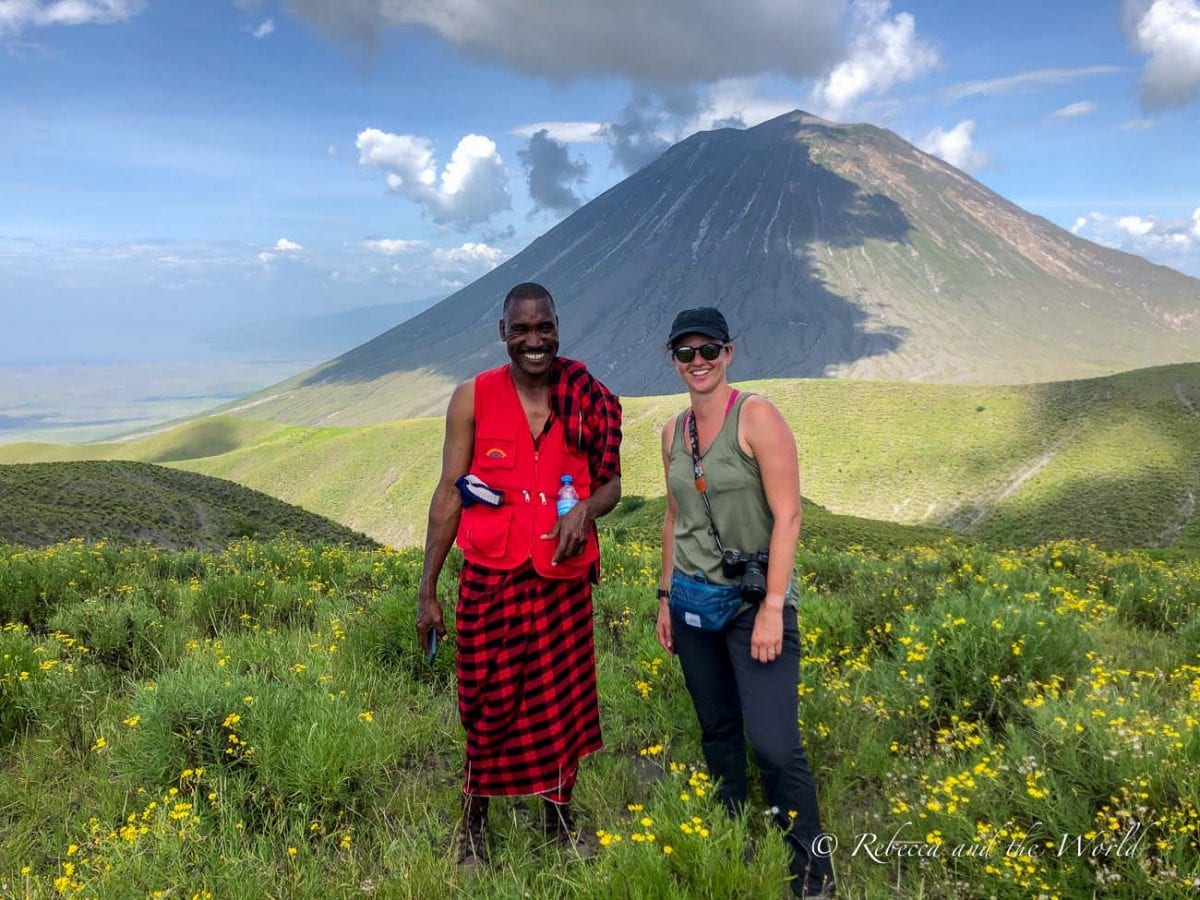
Consider hiring a locally owned tour operator. Obviously, a local company means the dollars go back into the local economy. Both the companies I chose are locally owned (and they also work with hotels that give back to their communities). That was a priority for me. Ask plenty of questions. Some foreign companies can look local, but if you dig a little deeper you’ll find out they aren’t.
Ask what types of vehicles they have – and which vehicle you’ll be using on your trip. I saw all variety of vehicles on my trip: sturdy 4WDs, minivans (that have different names in each of the countries, for example, a matatu in Uganda), and larger buses with full-side windows. A 4WD is a must to get through the often potholed roads. You also want a vehicle with a pop-up roof during your safari in Africa, so that you can easily and safely spot wildlife.
Check what support they have if a vehicle breaks down. Cars break down regularly which can mean lengthy delays, so you need to know what a company will do in that case. What back up equipment do they carry? How can they call for help? Will they give you some extra game driving time if the delay is lengthy?
Choose an ethical company. This can be difficult to determine – all companies will of course say they operate ethically. But you need to make sure they never drive off track. While it can be tempting to see a lion up close, if you drive off the track you can cause stress to the animals or ecological damage. The animals’ welfare should be the top priority.
Ask about the language skills of your driver. Most safari companies can arrange a tour in a variety of languages, but check first how skilled they are.
Find out about the knowledge of your driver. Does he or she have specialist skills or knowledge? Have they studied or do they have years of experience that are worth more than a degree? Do they carry wildlife guides in the vehicle? You’ll no doubt have a million questions on your safari trip. You want to make sure you can get them answered.
Go through your itinerary in detail. Check everything that’s included, ask how long each day’s drive will be, confirm what’s included in your accommodation (Laundry? How many meals? Alcoholic drinks?). You want to make sure there are no surprises or that your expectations aren’t understood clearly. Pick up the phone if you’re not sure that your needs are being met or understood through email.
Do your own research online, too. Don’t just rely on a hotel’s website. Go check other reviews on a site like TripAdvisor or Booking.com. (Although do take the negative reviews with a grain of salt most times!)
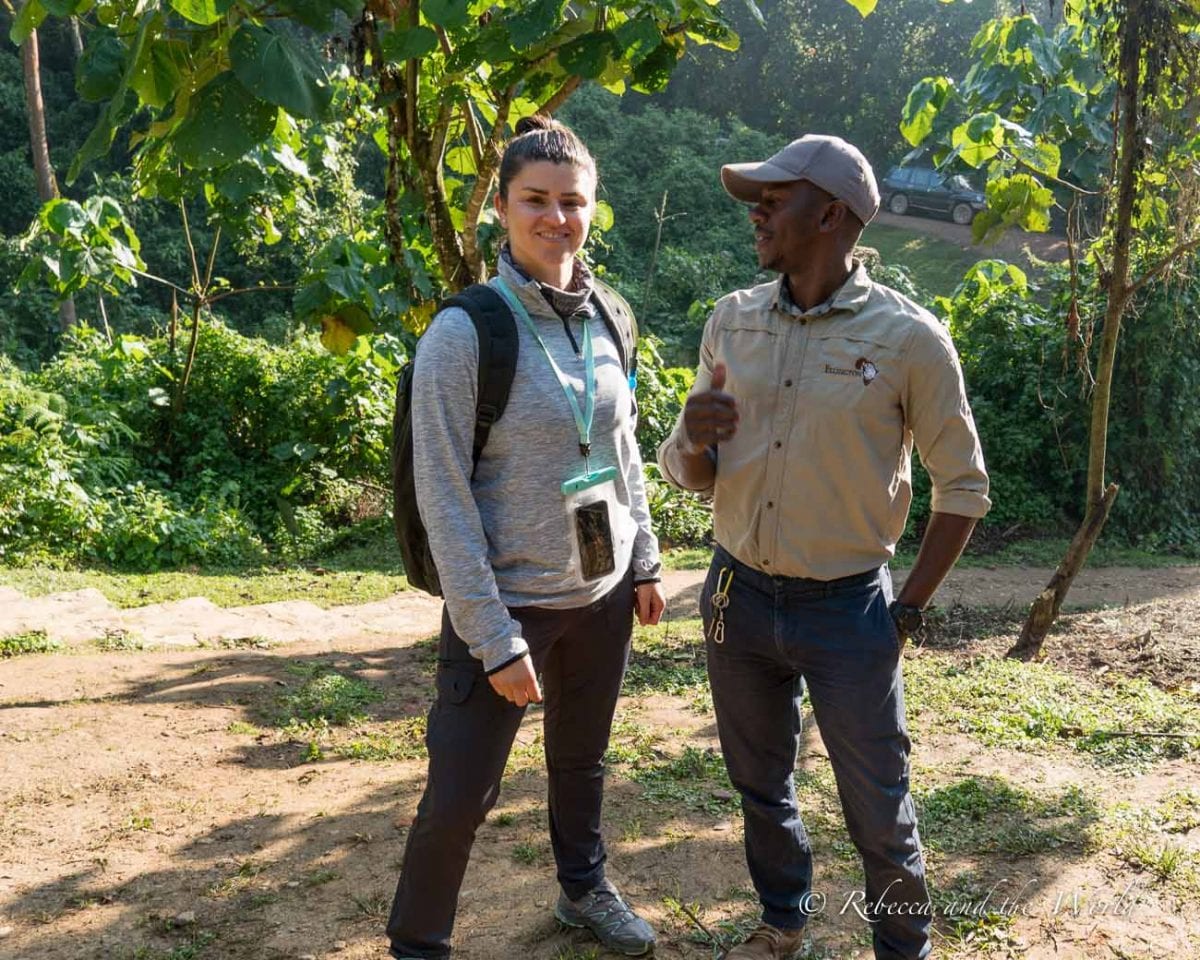
An African safari is the trip of a lifetime. I hope I’ve helped you as you begin your planning!
Did you find this article helpful? Consider buying me a coffee as a way to say thanks!
Would you consider hiring a private guide for a safari in East Africa? Or would you prefer doing it another way? Let me know in the comments below!
Related posts
Before you go… you might like these East Africa travel guides!
- A Unique 2-Week Tanzania Itinerary: Adventure, Safaris and Beaches
- A Wildlife-Packed Uganda Itinerary: One Week in the Pearl of Africa
- Gorilla Trekking in Uganda and Rwanda: What You Need to Know
- East Africa Packing List: What to Wear on Safari and Beyond
- An Epic 2 Week Kenya Itinerary
BOOKING A TRIP SOON? HERE ARE SOME HELPFUL LINKS
- Book your flight online with Skyscanner – it’s where I always start my flight research.
- Find a great hotel on Booking.com.
- Need a rental car? Compare prices and vehicles on DiscoverCars.
- Omio is a great site for booking buses, trains and ferries across Europe.
- Check out the huge range of day tours throughout major cities and countries on GetYourGuide, Klook or Viator. There’s something for everyone.
- One thing I always purchase is travel insurance. Travel Insurance Master allows you to compare across multiple policy providers, while SafetyWing is great for long-term travellers and digital nomads.
- Stuff I always pack? A reusable water bottle, packing cubes and a handy electronics organiser.
PIN IT FOR LATER:
